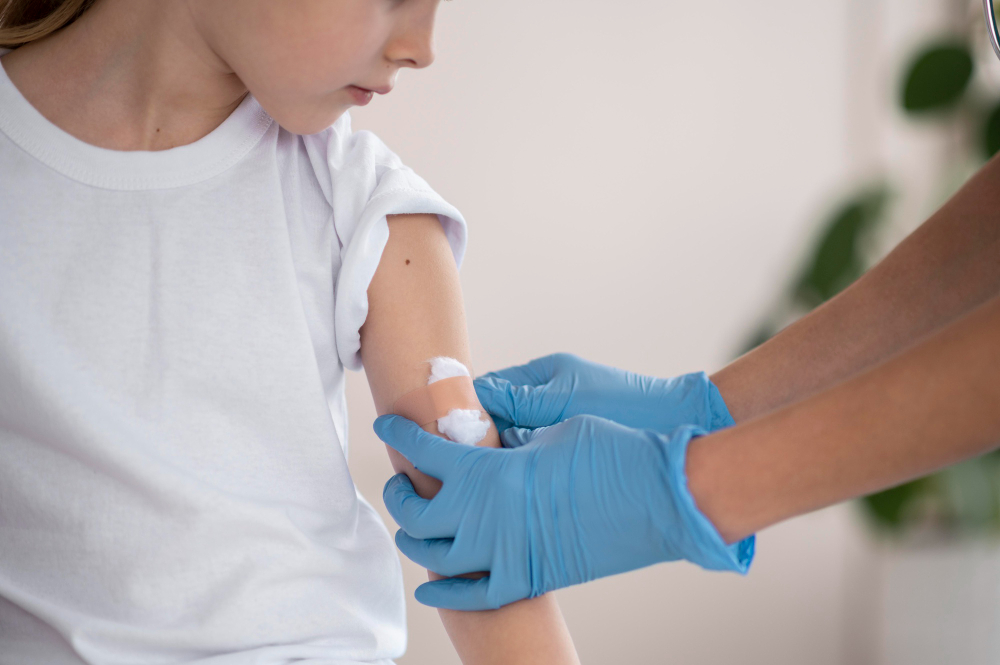
Domestic or farm animals are the main targets of Q fever, which includes sheep, cattle, and goats. Q fever is a bacterial disease brought on by Coxiella burnetii that can also infect people.
Human infections begin with flu-like symptoms, including fever, headache, and tiredness, which then lead to pneumonia. Chronic infections can develop problems with the heart, liver, or bones. It can be spread by consuming raw dairy products. The infected birth products of animals, urine or feces can cause the spread of bacteria to individuals.
What is the Q Fever Vaccine?
The Q-VAX vaccination is the only vaccine that is officially approved for use in humans. It is a single-cell vaccine made from the Henzerling type of Coxiella burnetii that has been killed. As it can cause adverse reactions in people who were previously introduced to it, it is strictly controlled in how it is used.
The Q Fever Vaccine, when it works right, lets your immune system “see” the infection safely. It can prepare a response if you are ever exposed to it.
How Effective Is It?
Research has demonstrated the effectiveness of the Q Fever Vaccine, also known as Q-VAX, with protection that lasts for years. Vaccinations are not, however, performed carelessly due to safety issues. This is because of the seriousness of some reactions, particularly in those who have previously been immune. Individuals who work in veterinary clinics, cattle farms, or slaughterhouses may be at high risk of getting affected by Q-Fever and hence, they should use the vaccine for it.
Why Pre-Screening Is Essential
Two tests are required before administering the Q Fever Vaccine:
- Skin Test: To determine whether you have preexisting immunity or hypersensitivity, use a skin test.
- Blood Test: A blood-based serological test to identify previous Coxiella burnetii exposure
After exposure, the vaccine may cause irritation, lumps, or infections. Pre-vaccination testing, avoid it.
Individuals must pass the screening without prior exposure. Before being exposed to animals or contaminated settings, the body needs two weeks to build immunity.
Side Effects and Risks
The following are typical side effects of the Q Fever Vaccine:
- Discomfort at the injection site, swelling, and oedema
- Mild pain
- Sudden flu symptoms
Way to Stay Safe Without a Vaccine
Since the Q Fever Vaccine isn’t widely available, the best way to protect yourself is to avoid getting it. Some important methods are:
- Staying away from cattle, especially during birth and slaughter
- Wearing masks and gloves in an infectious atmosphere
- Avoiding raw milk
- Animal-friendly aeration
- Applications of high standards of cleanliness in fields.
Anyone who wants to avoid getting Q fever can do so by following the safety steps mentioned above.
Who Should Get Vaccinated?
Individuals in high-risk occupations are most suited for the Q Fever Vaccine:
- Livestock slaughterers
- Agricultural workers
- Veterinary and animal handlers
- Laboratory personnel handling Coxiella burnetii
How Immunity Works
Your immune system reacts to the Q Fever Vaccine by producing T-cell responses to fight intracellular bacteria and antibodies that recognise extracellular germs. The T-cell response is crucial because it “ticks over” in the background, prepared to respond if a live infection tries to establish itself.
Conclusion
Although it is uncommon in many locations, exposure to livestock can result in Q fever. Only individuals who pass pre-screening can receive the Q Fever Vaccine (Q-VAX), which provides strong protection under very specific circumstances. Prevention must rely largely on exposure control and hygiene practices because it is not generally accessible.
To learn more about Point Cook Doctors’ immunisation services, if you live in Victoria and work around animals, contact us. Our medical staff can assist you with safe vaccinations, consultation, and pre-screening if you qualify.
Contact Point Cook Doctors if you work in a high-risk position. We can tell you if you should get screened for or vaccinated against Q fever.



Interesting read! Understanding patterns is key, and platforms like bigbunny slot download apk are evolving to offer personalized experiences-almost anticipating player preferences. Quick registration is a plus too!
Been playing on the jilipark app and it’s pretty fun! Lots of different games to try. Recommend giving it a shot. jilipark app
Hey, I used ph8loginapp the other day – super simple login. Saved me a ton of time! Check it out: ph8loginapp
Been playing on Playwin247 lately and actually got a win! Not bad at all. Feeling lucky! Give it a shot: playwin247 win
[6634]SS7777 Login, Register & Slot Games: Download the SS7777 Official App for the Best Casino Experience in the Philippines. Join SS7777 for the best casino experience in the Philippines! Quick ss7777 login & register to play ss7777 slot games. Download the ss7777 official app now and win big today! visit: ss7777
Fingers crossed for some slot lucky tonight! Been feeling lucky all day. Gonna try my hand at winning some extra cash. Here’s to hoping! Check out slot lucky.
Looking for a jogo slot real to try my luck. Any recommendations? I want something that’s not rigged and with a decent RTP. Give me suggestion now ! Searching a jogo slot real.
I use soi cầu mb kubet from this website as a starting point for my picks. It’s not guaranteed, obviously, but it helps refine your thoughts. Have a look – it’s a good resource! soi cầu mb kubet
Alright folks, just signed up with eu88 bet and so far, so good! The games look solid and the site’s easy to navigate. Fingers crossed for some winnings! Check ’em out here: eu88 bet
Hey guys, checking out jili2 lately. Got some cool slots and the bonuses are pretty decent. Might stick around for a while! Give it a whirl: jili2
Anyone else using jili777login? Had a blast playing some of their games last night. The login process was smooth too which is a huge plus! Jump in here y’all: jili777login
Alright, 73betplataforma. I’ve just checked it out. Nice colour and its user-friendly. Easy to use, no glitches so far. 73betplataforma for me!
tai56win. Never heard of it before, but I decided to try it out today. The colours are amazing. Recommend it to try once. Do you like tai56win?
MTM777 is my go-to spot! Great selection of games and the payouts are quick. I always have a good time there. Check out mtm777!
Выбирая надежную платформу, стоит обратить внимание на хостинг для хрумера, который обеспечивает бесперебойную работу.